In the course of discussion «New System of Ukrainian Police Evaluation: how to avoid «old» problems», which was held by the Expert group «Police under Control» on 20 December 2016 in Kyiv, experts on human rights proposed a new system of evaluation of police effectiveness. In order to implement it is necessary for the quality evaluation to be provided by the commissions that depending on the unit shall be comprised of representatives of police, bar, former law enforcement officers etc.
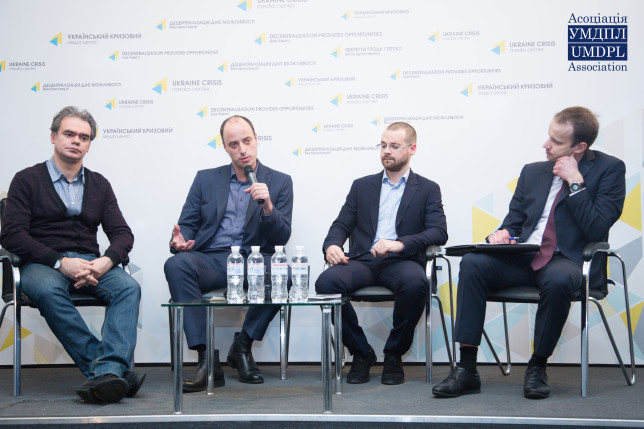
The proposed system was presented in the scientific and practical publication of the Expert group «Evaluation of Effectiveness of Police Work in Ukraine: form “sticks” to the new system (on pre-trial investigation example)» (unfortunately only in Ukrainian).
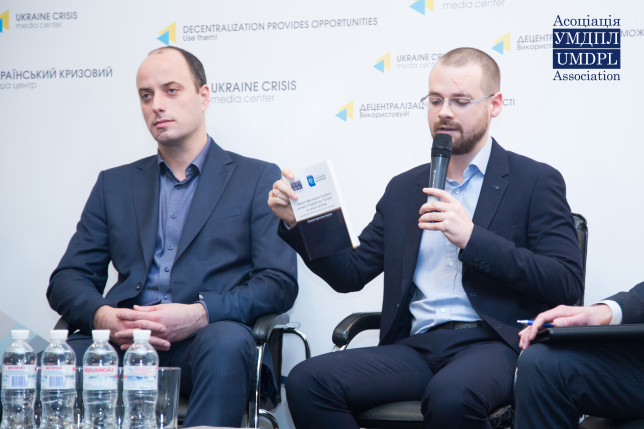
Today de facto continues to exist one of the relics of the Soviet militia – «baton» system of evaluation of police effectiveness which leads to a number of human rights violations within the criminal justice system. The basis of this system is the «cases solved» indicator formed according to categories of crime components for pre-trial authorities and number of administrative protocols on certain articles for other services.
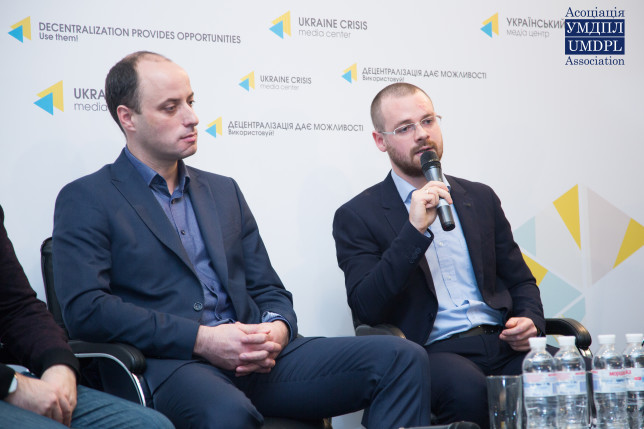
Eugene Krapyvin, lawyer, expert of the group, mentioned: «It has been almost a year and a half since the new on police was adopted. The old system of police evaluation is formally eliminated, but the new, however, has not yet been introduced. Under such circumstances investigative authorities continue working by inertia – police leadership constantly asks them “How many” Qualitative evaluation together with quantitative indicators based on criminal statistics is what can be the system of evaluation of police effectiveness. It is the trust of citizens that has to become the basis of a comprehensive system of quantitative and qualitative indicators. It is necessary for the new system to be focused on people and their needs rather than on departmental statistics as an artificial proof of one’s work effectiveness to the hierarchy».
According to expert of the group, creation of special commissions is an effective mechanism through which civil society can really influence decision making. «This can be seen from the experience of both attestation commissions that conducted re-attestation and police commissions that select officers who come to service for the first time or consider issues of promotion» – said Eugene Krapivin.

Yuriy Belousov, the head of the Expert center on human rights, underlined that the new system of evaluation does not require to cancel statistical indicators. “Statistical indicators of work of law enforcement authorities does not have to be perceived by the leadership as the main criterion of effectiveness. Otherwise, subordinates would simply “adjust” these indicators to the necessary level”, – mentioned Yuriy Belousov. The same as today sociological survey data on the level of trust to police is being “adjusted”.
The result of such practice is the curvature of data on crime rate in Ukraine as a whole, as well as human rights violations. Yuriy Belousov knows about this from his own experience of work in the Department for Monitoring Human Rights Observance in the Ministry of Internal Affairs which exists from 2008 to 2010. “Police officers were even making certain illegal items which they later “heroically” confiscated. There was a tendency in the regions when the same pack of 25 bullets was confiscated several times during the day from two or three persons. The same situation was observed with drug substances”, – said Yuriy Belousov.
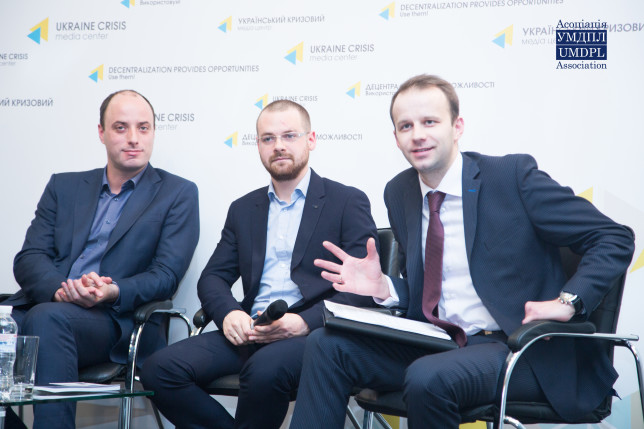
«We are now trying to fight this and exclude the indicators that can be manipulated», – said Borys Vezhnavets, Deputy head – Head of Unit of the Department for Organizational and Analytical Provision and Operative Reaction of the National Police of Ukraine. For example, the percentage of solved cases can be used for murders because such crimes have to be solved. However, in cases of thefts indicators can be manipulated because the lesser of such cases registered, the more a percentage of solved cases.
Borys Vezhnavets informed of the state of elaboration and implementation of police evaluation system: «The draft decree on the order of police evaluation is being elaborated by the Ministry of Internal Affairs of Ukraine. As of now a decree is awaiting approval by the State Regulatory Service. In our activity we try to use the experience of Poland which foresees three parts: the level of trust of population, the use of statistical indicators without enforcement to their artificial increase, evaluation of their work by policemen themselves».
The level of trust of population to police shall be defined by independent national sociological surveys among citizens in the field. A questionnaire with a set of questions will allow to clarify what the worries the society the most.
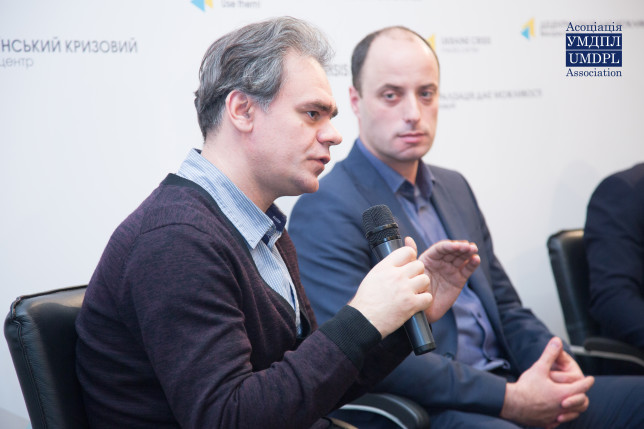
«The instrument of independent sociological survey as a mean to understand the level of trust of population in police can be also applied both to human rights protection and to engage communities and society to improvement of police work. Besides that, it is useful for police itself and the Ministry of Internal Affairs to improve their work and perform their functions more effectively», – mentioned Borys Malyshev, Doctor of Law, expert on human rights and public law.
Borys Vezhnavets, the representative of the National Police, concurred the interest of police officers in such an instrument: «We cannot solve 100% of cases but what we can influence is the speed of reaction, culture of service, traffic safety and separate types of crimes. Therefore, it is important for us to strudy public opinion in order to understand what worries people in the first place», – said Borys Vezhnavets. According to Borys Vezhnavets, a questionnaire has to be elaborated by sociological organizations that were delegated to conduct surveys in cooperation with the Ministry of Internal Affairs. “As far as I know the draft decree prepared before, there has to be a tender announced to define an institute that will be conducting researches. It is very important that such an organization has enough experience and staff to conduct sociological researches”, – he added.
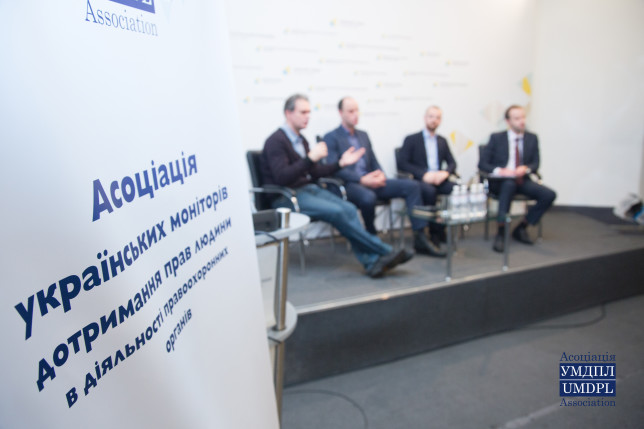
In order to prevent possible risks during the elaboration of a new system, participants of discussion called to ensure the transparency during discussions of all acts with civil society. «Different sociological organization having experience of conducting such researches, for example Kharkov institute of social research, could comment on this decree and warn the Ministry of Internal Affairs about weak spots and possible risks. There have be public hearings», – concluded Eugene Krapivin.
